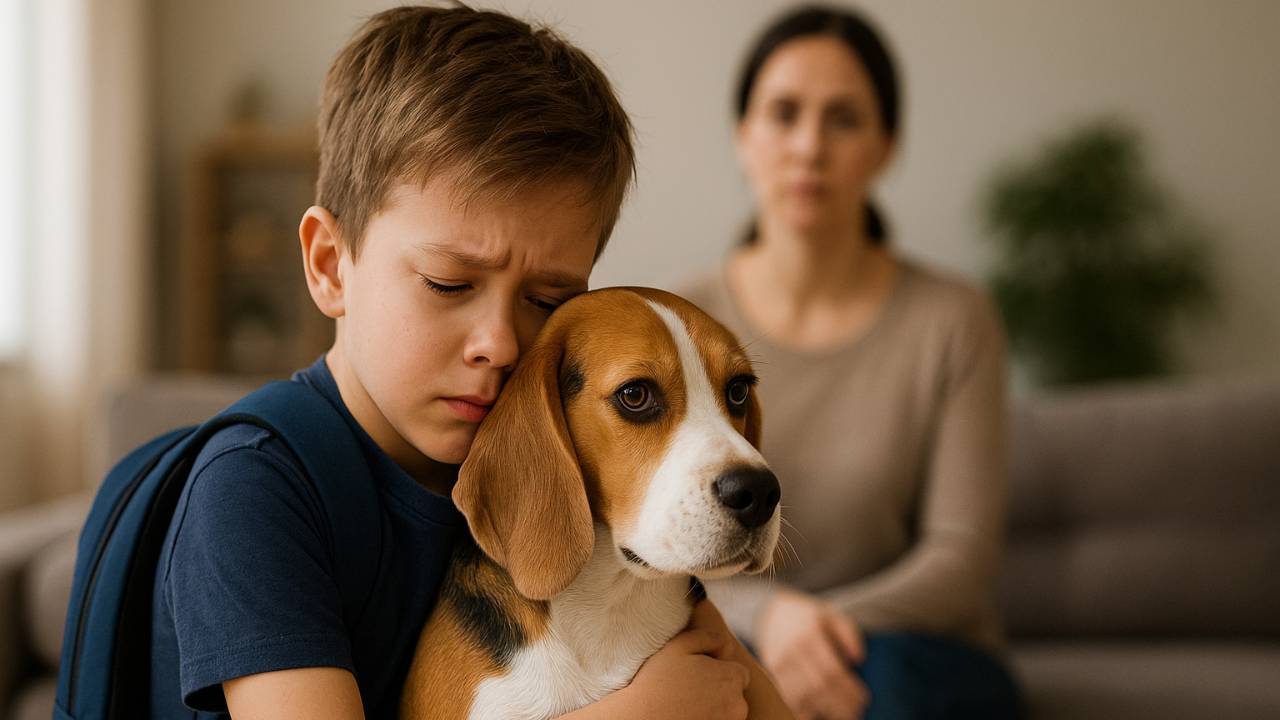Helping Kids Recover from a Bad Day at School
Sep 07, 2025
Every parent knows the joy of celebrating when their child bounds out of school with a smile, eager to share a win from their day. But what about the harder days... the ones where your child trudges out with slumped shoulders, a scowl, or even tears?
Bad days at school happen to every child, and when they do, parents are often left wondering: What’s the best way to help? Should I try to fix it, offer advice, or cheer them up?
If your instinct is to jump in and problem-solve, you’re not alone. Many well-meaning parents try to make their child feel better by asking questions, giving pep talks, or offering solutions. But here’s the tricky part: that approach often backfires. Instead of calming down, kids can get more upset, shut down, or lash out.
Why Kids Struggle After a Tough School Day
- Emotions are running high. A bad day fills your child’s nervous system with stress. Until those emotions are released, their brain can’t easily shift into problem-solving mode.
- Your presence feels safer than logic. When kids get home, they want to feel comfort, not a lecture or quiz. Logical questions, even gentle ones, can feel overwhelming.
- They just need to be heard. Most of the time, what children want most after a bad day is to feel understood, not “fixed.”
What Parents Can Do Instead
So, what helps kids recover after a rough day? Here are practical ways to support them:
1. Lead with empathy, not solutions
Instead of jumping into problem-solving, try something simple like:
- “Wow, it sounds like today was really tough.”
- “I can see you’re upset. I’m here with you.”
This communicates safety and validation, which is what kids need before they can think clearly.
2. Create space for decompression
Give your child a little time to reset before expecting conversation. A snack, quiet play, a walk outside, or even cuddling with a pet can help their nervous system calm down.
3. Be okay with silence
It’s uncomfortable, but sometimes the best gift you can give is your calm presence without pressing for answers. This gives your child the signal: You don’t have to hold it all together here. I accept you as you are.
4. Circle back later
Once your child has let out the big feelings, their brain can re-engage. That’s when you can gently ask, “Do you want to talk about what happened?” or “Would it help to think of some ideas for tomorrow?” Timing is everything -> connection first, problem-solving second.
5. Model recovery for them
ids notice how we handle our own stress. If you share age-appropriate examples, like, “I had a tough day too, and I’m going to take a walk to clear my head”, you’re showing them healthy coping strategies without lecturing.
6. Preventing after school meltdowns
For more strategies on how to prevent the meltdown, check out Dealing with End-of-School Day Moods & Meltdowns.
The Payoff: Stronger Connection
Sitting with your child through their hard feelings may feel uncomfortable at first. You may want to jump in with advice or reassurance to make the pain go away. But resisting that urge and simply being present pays off.
When your child feels safe to share the messy, hard parts of their day without being “fixed,” you build trust. Over time, this deepens your relationship and makes it more likely that they’ll come to you when bigger challenges arise.
Parenting isn’t about having the perfect answer for every problem. It’s about being the steady presence your child can count on, especially after a tough day at school. Once kids know their feelings are safe with you, they’ll find it easier to bounce back, learn resilience, and face tomorrow with more confidence.
✨ Parenting Toolbox Tip: If your child has frequent tough days, create a simple “after-school recovery ritual.” This might include a healthy snack, 10 minutes of quiet time, and then a choice of an activity like drawing, biking, or listening to music. Routines like this give kids something predictable to look forward to after a hard day.
If your child’s after-school meltdowns or tough days feel overwhelming, you’re not alone, and you don’t have to figure it out on your own either. I’d love for you to join me at my upcoming virtual Big Feelings Workshop, where I’ll teach you why kids struggle with big emotions, the 5 mistakes that can accidentally escalate them, and practical tools you can use to calm the chaos and strengthen your connection. This workshop only happens once a year, and it’s free to attend live, so I hope you’ll save your spot and join us! 👉 Reserve your seat for the Big Feelings Workshop
Join the Confident Parenting Community.
Receive the latest tips and tools from the Confident Parenting Toolbox to support your kids
(and yourself!) with today's challenges so your whole family can thrive.
We hate SPAM. We will never sell your information, for any reason.

